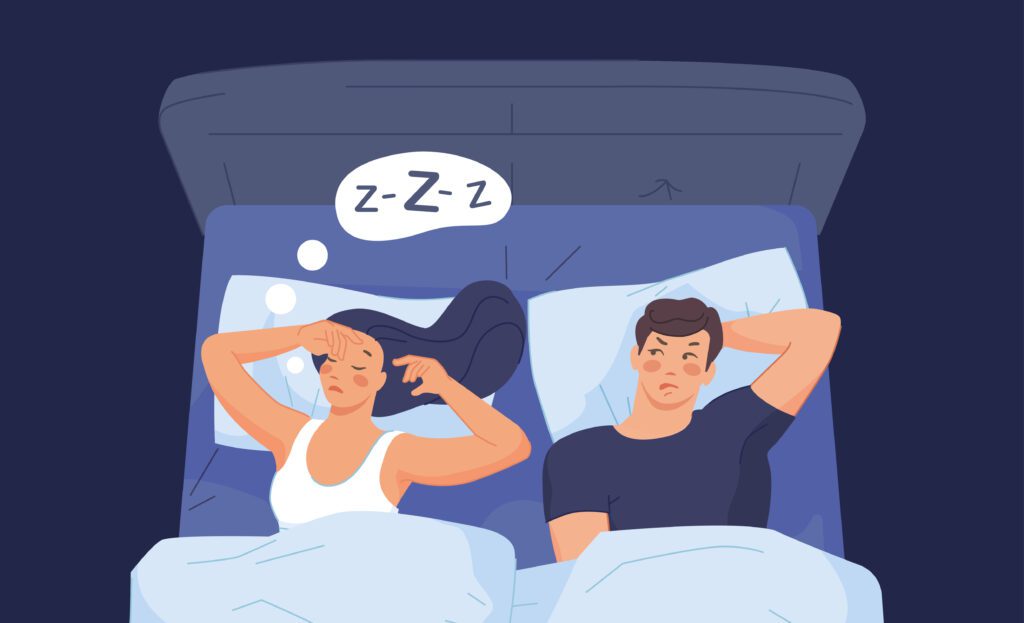
When sex becomes difficult
Text by Julie Barrie (julie@psykologvirke.no) psychologist and couples therapist
- No matter what I do, she won't!
- All he thinks about is sex!
Are you and your partner stuck in a negative sexual cycle?
How did our inequality affect our sex lives?
There are a lot of things couples in long-term relationships have to figure out together. How should we spend our money? How clean should we keep it at home? How much personal time versus family time should we have? How will we spend our holidays?
It is rare for couples to have coincidental wishes related to all these topics, so this is where one of the couple's greatest challenges begins - and an arena for growth: how should we communicate around, and deal with, the fact that we have different preferences and wishes?
Are we going to raise our voices and become increasingly insistent that we are right, and tell the other person – directly or indirectly – that they are wrong, or worse is wrong, because it's not like me!?
Of course not, but most of us fall into these ruts on a regular basis anyway. And this is where this negative cycle or negative circle comes in.
Because we can either deal with the differences between us in ways that enter a positive, reinforcing track, where over time we become better at understanding each other and make arrangements to accommodate each other's wishes and needs - or we can become increasingly critical and dismissive and get shorter and shorter fuse in relation to the other's difference.
Different ignition patterns
And this also applies to sex. It is very rare that couples, over time, have the same need for sex or initiate sex as often. It is more common for there to be a discrepancy in sexual desire in both heterosexual and homosexual couples, i.e. that one party wants sex more often than the other, and that one party may have a responsive sexual desire while the other has a spontaneous sexual desire.
According to sex researcher Emily Nagoski 70% of men have spontaneous sex drive – i.e. that a mental stimulus, for example something they see or think, can arouse physical desire – while 50-60 % of women have responsive sex drive. This means that physical desire only occurs when many different factors are present. For example, that they feel calm, comfortable, a good connection with their partner and security.
It is easy to see that these two ignition patterns can collide if one assumes that the other is - or should be - like me. For example, a man with a spontaneous ignition pattern (10-20 % of women also have a spontaneous ignition pattern) can say something sexual or touch the woman in a sexual way because that is how his desire is aroused. But if her body is not in that state, it could be wrong for her.
How couples communicate around and resolve this difference can cause them to enter positively reinforcing tracks, where they constantly get to know each other better and can facilitate good interactions - or they can enter negative tracks where they start criticizing each other and attribute negative qualities to each other.
How can we turn this around?
Many couples come to therapy with this issue, and it is very nice that they are asking for help to reverse such a pattern. First of all, the therapist must help the couple to map the negative cycle they have entered, so that the couple can recognize it and see how this dynamic is destroying them.
The couple is then guided to go a little deeper into what is stirring under the harsh statements or withdrawals, and practice communicating it to each other instead.
Examples of new statements can be:
– I so want to be close to you. I am so afraid that we will drift apart when everyday life is so hectic. And I know I can be unsure if you still love me.
Or;
–I get so scared when you show you want sex. Because I don't know if I can make it happen. And then I either just have to "play along" which I know is not good for me, or I have to say no and hurt you. I hate to hurt you, because I want you to be happy. And I want you to know that I love you.
If the couple can talk to each other like this, where they dare to be vulnerable and take care of each other while also talking about the differences between them, then they have taken big steps in relation to entering new tracks that can grow stronger over time . And this time with a positive sign.







